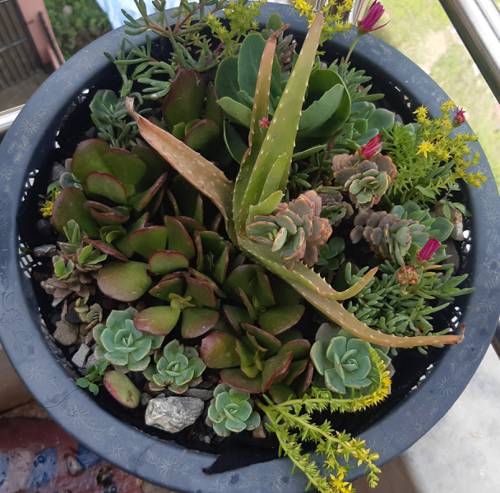
FAQ About Indoor Plant Natural Air Fresheners

What are the best indoor plants that act as natural air fresheners?
Some of the best indoor plants that naturally freshen the air include lavender, eucalyptus, mint, rosemary, and jasmine. These plants release aromatic compounds that can scent the air while also potentially boosting air quality.

How does lavender enhance indoor air quality?
Lavender is known for its pleasant fragrance, which can help in masking odors. Additionally, it releases essential oils into the air that have calming properties. While it does not filter toxins like some other plants, its aroma can improve the ambiance and make indoor spaces more pleasant.

Can eucalyptus be used as a natural air freshener indoors?
Yes, eucalyptus can be an effective natural air freshener. The leaves of the eucalyptus plant release fragrant oils that can fill a room with a fresh and invigorating scent. This aromatic property can help to combat unwanted odors in indoor spaces.

How should I care for indoor eucalyptus plants?
Indoor eucalyptus plants require bright, indirect light, well-draining soil, and regular watering when the top inch of the soil feels dry. Proper airflow helps prevent disease. Pruning is also recommended to promote healthy growth and control size.

Is it true that indoor plants can purify air?
Some studies have suggested that certain indoor plants can help purify air by removing toxins such as formaldehyde and benzene. However, while plants can improve air quality by adding oxygen and humidity, their effect on removing toxins in a typical indoor setting is limited.

What benefits do aromatic plants provide besides freshening air?
Apart from freshening the air, aromatic plants such as lavender and rosemary offer therapeutic benefits, including stress relief and improved mood. Their essential oils can be calming and invigorating, contributing to overall well-being.

Can indoor plants replace artificial air fresheners?
Indoor plants can serve as a natural alternative to artificial air fresheners by providing a pleasant scent and improving the ambiance of a room. However, they may not provide the same intensity or immediate effect as commercial air fresheners.

How does mint act as a natural air freshener indoors?
Mint plants release a refreshing and invigorating scent that can be very effective as a natural air freshener. Their aromatic leaves can help dispel unpleasant odors and leave a clean smell in your home.

Are there any health benefits to using natural plant air fresheners?
Using natural plant air fresheners can have health benefits such as reducing stress, enhancing mood, and preventing irritation that might be caused by synthetic fragrances. Aromatic plants release essential oils that can have soothing or invigorating effects on the mind and body.

How effective are indoor plants compared to mechanical air purifiers?
Mechanical air purifiers are specifically designed to filter and remove particles and toxins from the air efficiently. Indoor plants primarily improve air quality by releasing oxygen and humidity, but they don’t match the filtration capability of mechanical purifiers.

Does having more plants increase the air freshening effect?
While having more plants can enhance the aromatic effect due to multiple sources of fragrance, the impact on air purification may be minimal. The scent will be more pronounced, but the ability to improve air quality depends more on the variety and placement of plants.

Is rosemary an effective indoor plant for freshening air?
Yes, rosemary is an excellent option for freshening air indoors. It releases a strong, pleasant scent that can invigorate a space. Additionally, rosemary is easy to grow and maintain, making it a convenient choice for indoor aromatic enhancement.

How do I increase the aroma from my indoor plants?
To enhance the aroma from indoor plants, ensure they are healthy by providing adequate sunlight, water, and airflow. Crushing a few leaves can release more fragrance temporarily. Regular pruning and care also help maintain plant vigor, which can enhance scent.

Which indoor plants work best against pet odor?
Plants such as lavender, eucalyptus, and mint are particularly effective against pet odors due to their strong aromatic properties. These plants can mask unwanted smells and leave your indoor space smelling fresh.

Can jasmine be used as an indoor air freshener?
Yes, jasmine has a sweet, powerful fragrance that makes it an excellent indoor air freshener. It is perfect for use in areas where you wish to cover lingering odors while also enjoying the natural scent it provides.

What are the best placements for indoor aromatic plants for natural air freshening effects?
Place indoor aromatic plants in areas where air circulation is good to spread their scent effectively, such as near windows or air vents. Also, consider placing them in high-used areas like living rooms or bathrooms for maximum benefit.

Do indoor plants require specific conditions to thrive while freshening air?
Most aromatic indoor plants require bright, indirect light, moderate watering, and regular maintenance such as pruning to thrive. The exact needs will vary based on the plant species, so it is important to research individual care requirements.

How often should indoor plants be replaced to maintain their air freshening ability?
The longevity of an indoor plant’s air freshening ability depends on its health and care. As long as the plant remains healthy and well-maintained, it will continue to produce fragrance. Replace plants if they become unsustainable or if growth is stunted beyond recovery.

Can I use essential oils in combination with indoor plants for enhanced air freshening?
Yes, you can use essential oils in conjunction with indoor plants to boost fragrance in your home. Essential oils can be diffused to complement the scent of live plants, providing a layered aromatic experience.

Do all indoor plants naturally freshen the air, or only specific kinds?
Not all indoor plants naturally freshen the air. Only specific aromatic varieties like lavender, mint, and eucalyptus emit noticeable scents. Many other plants contribute to air freshness primarily through oxygen production rather than aromatization.
